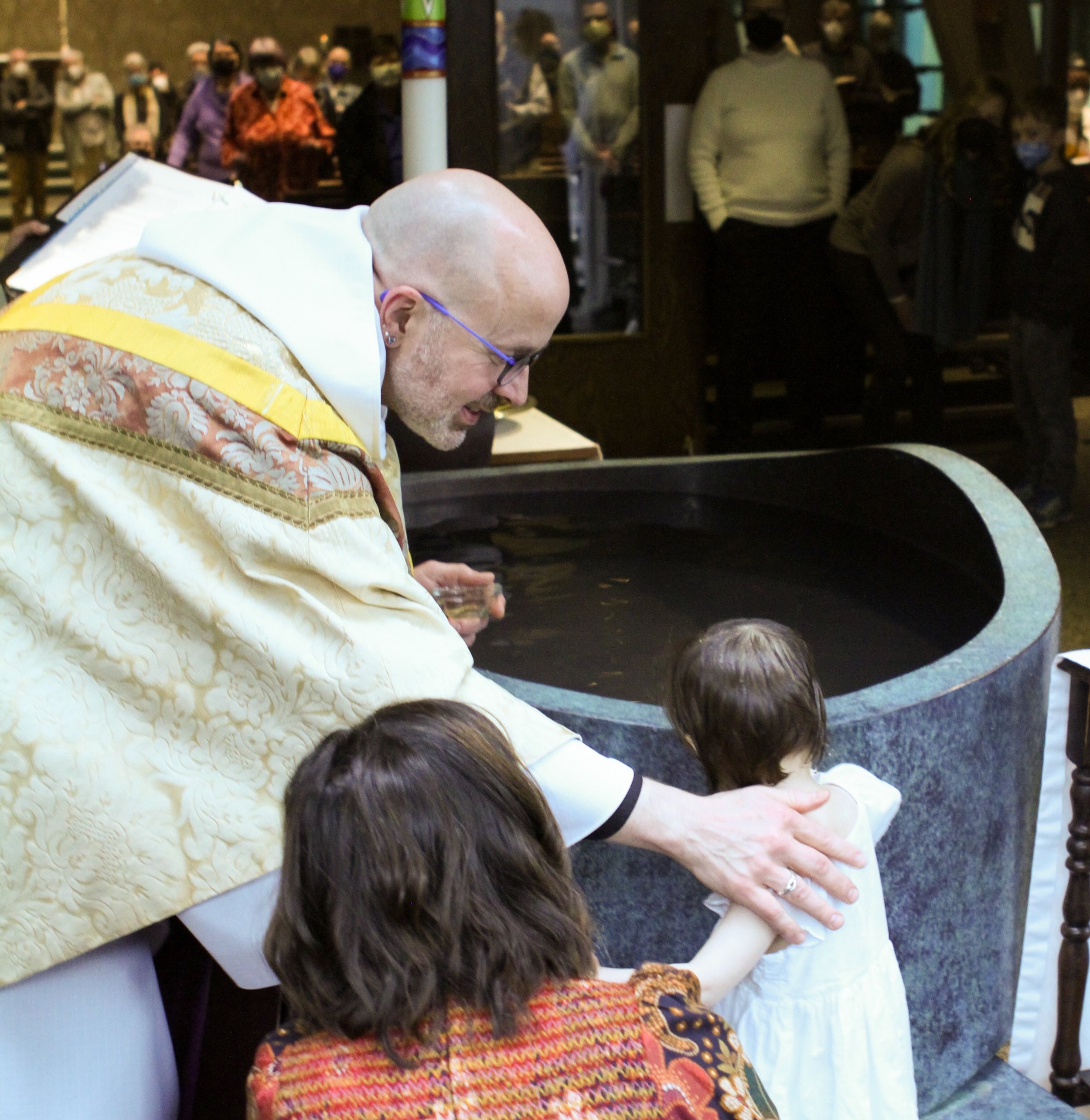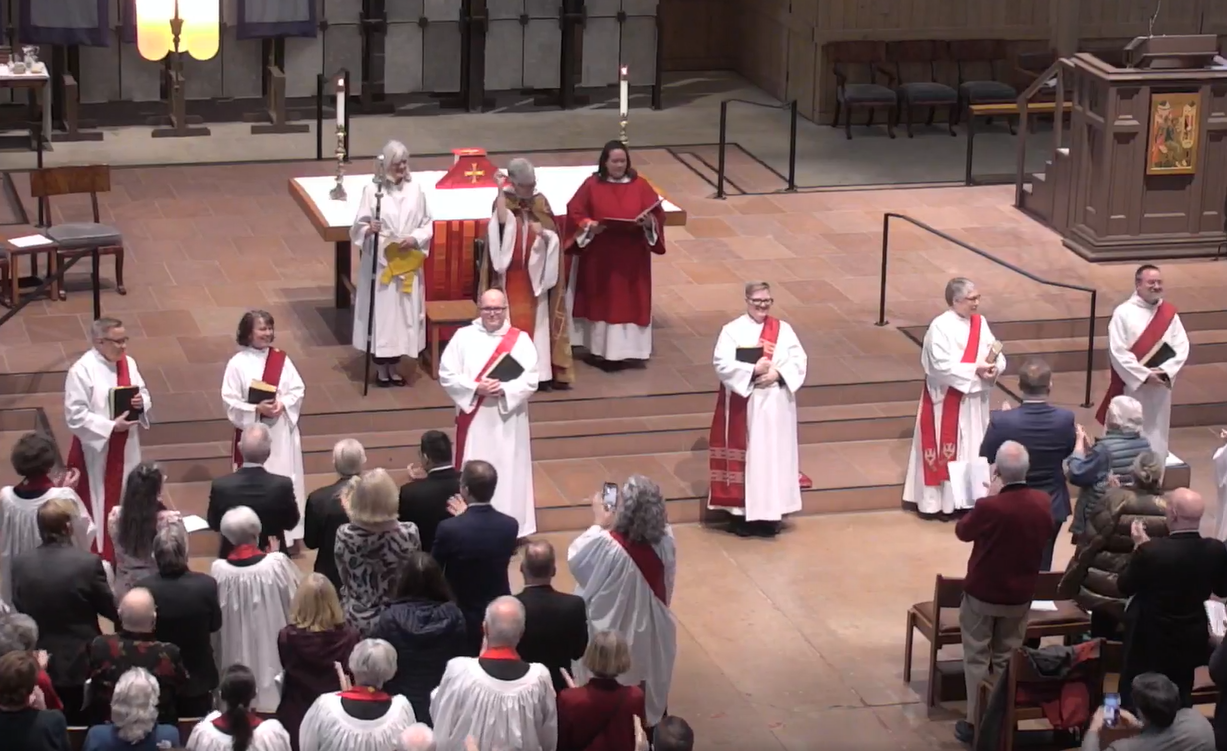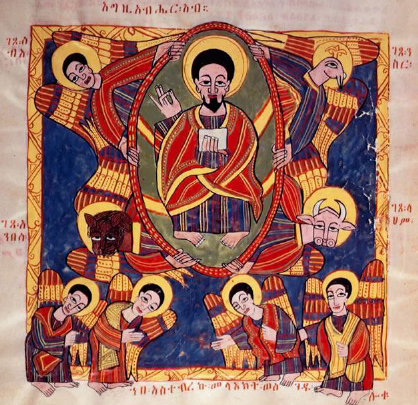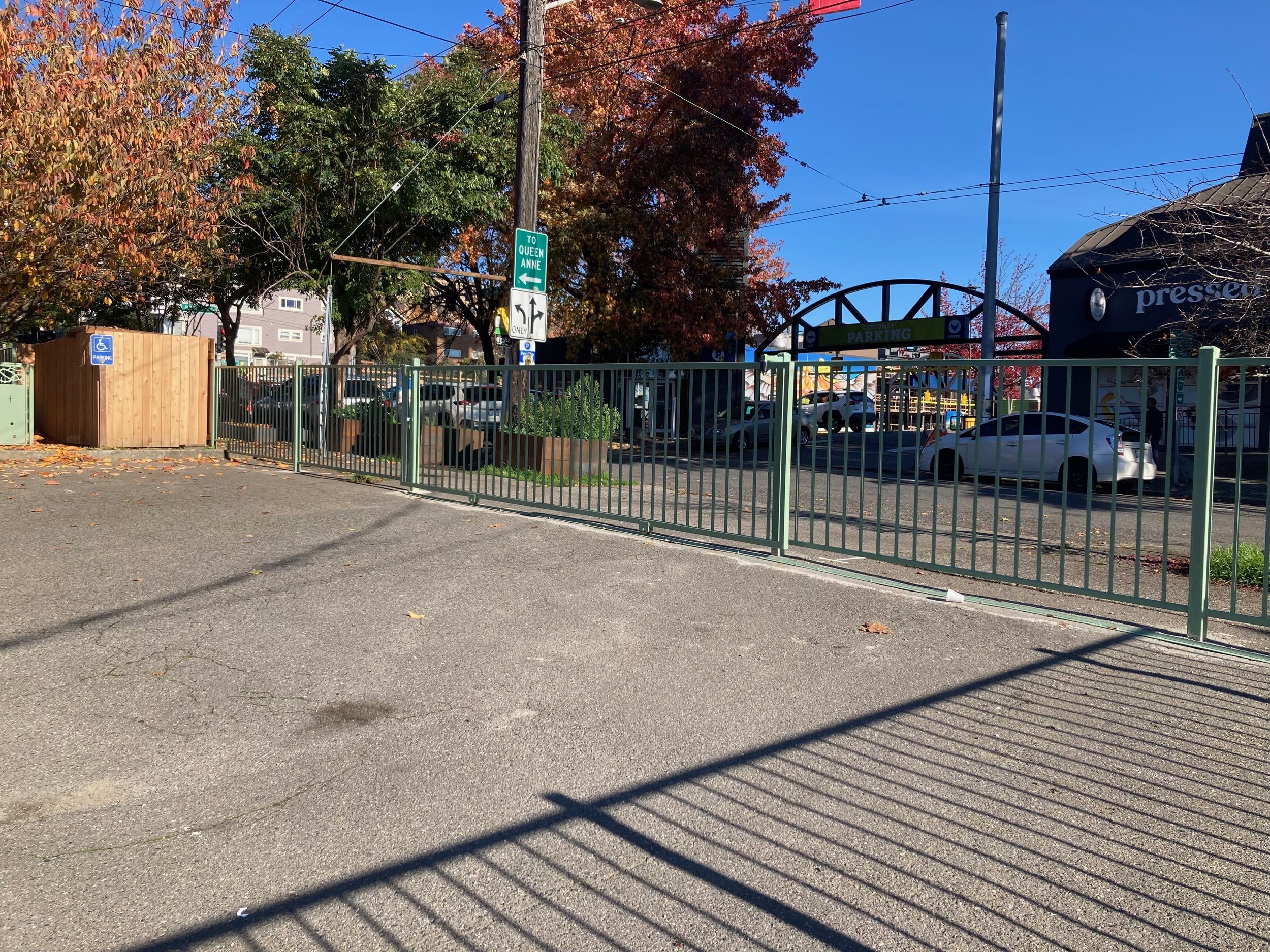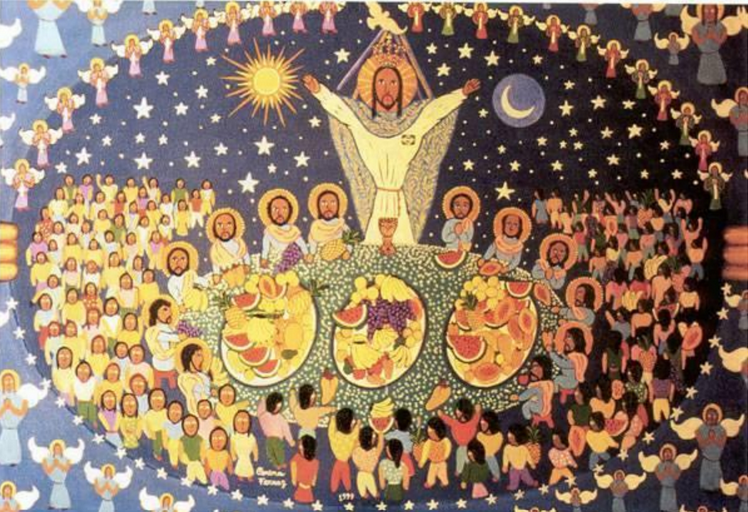Preached on Ash Wednesday, February 14, 2024, at St. Paul’s Episcopal Church, Seattle, Washington by The Reverend Stephen Crippen.
Joel 2:1-2, 12-17
Psalm 103:8-14
2 Corinthians 5:20b-6:10
Matthew 6:1-6, 16-21
Help comes to Aragorn’s beleaguered army in the closing scene of the Battle of Helm’s Deep, in “The Two Towers,” the 2002 film adaptation of the J.R.R. Tolkien novel, directed by Peter Jackson.
The army is assembling on the hillside. The enemy is forming a battle line. They are in lockstep, forming into ranks and files. They brandish dreadful weapons. They are so numerous they cannot be counted. They are not a group or a team or even a crowd: they are a swarm. They are younger than our elder warriors. They are older than our untrained youth. They stand tall.
Here is how the prophet Joel describes them: Like blackness spread upon the mountains a great and powerful army comes; their like has never been from of old, nor will be again after them in ages to come.
Consider their weapons. One of their most awful weapons is disinformation: the enemy persuades people in our land to believe conspiracy theories, to assume the worst of our leaders, to be cynics. Civil discourse about civil rights can hardly stand up to snide, combative personal attacks. Everyone plays the Gotcha! game, and eventually everyone loses. There are so many lies and distortions floating around, nobody can believe the truth, or even trust a few basic facts.
But the enemy also comes at us with the subtle yet devastating weapon of despair. Our young adults resign themselves to a lifetime of debt, and our housing crisis persists, dulling the city with gray and gritty discouragement. Climate change seems inevitable: “We’re cooked, literally,” people sigh to themselves. Factory farming, systemic racism, hollowed-out small towns, extreme weather, apocalyptic regional wars, rising seas: it is all too easy to submit to the enemy’s nudge in the back of our consciousness, the thin, wretched voice that whispers to us, “All is lost.” And if all truly is lost, I don’t have to do anything, do I? What’s the point?
And then there’s the weapon of discord. The enemy sows conflict, and makes every encounter a battle. Let’s fight. It’s all too easy for me to assume you are my opponent, my adversary, that you have malign intentions against me, even if we actually have deep capacity for empathy, and we both just feel lonely, or scared. When, say, the nation is struggling with issues of justice and freedom of speech on college campuses, we don’t look for common ground; somebody needs to take the blame. Somebody needs to go before the kangaroo court of a Congressional hearing and get tripped up in a cynical interrogation, say the wrong thing, and be forced to resign.
Even in the Church, again and again, we take up our opposing sides. Who’s the better congregation? Who’s wrong about how to spend our money? Whose fault is it that many mainstream churches are declining? And what was the National Cathedral thinking, charging admission to a Christmas Eve service? Let’s berate them on social media! Jesus said his deepest desire was for us to abide with him as one people, in beloved community. But the enemy tears our community apart with the weapon of discord.
In the face of this oppressive enemy, the prophet Joel blows the shofar, and calls an assembly. We are to come together. All of us.
We come together every springtime, usually at about the same time in Seattle when we begin noticing the crocuses pushing up from the sodden ground. Every single blade of grass is green right now — have you noticed? In just five months or so we’ll see brown grass everywhere, but right now the land is green. The trees are beginning to awaken. This is Lent. Lent: a word related to the word lengthen, as in, lengthening daylight. Spring is the time in the church when we hear Joel’s horn blowing and we come together. We assemble. The aged, but also children, “even infants at the breast.” Everybody comes together.
Then we take stock. We take a hard, morning-after look at what we have, what we’ve lost, how we really are doing. On Ash Wednesday, we sort through all the ways we’ve strayed from the Good News, all the ways we’ve squandered the gifts we’ve been given, all the ways we’ve messed things up. We account for all of that. We do this not to beat ourselves up: we never, ever proclaim a faith that shames people. That is never what we’re about. We are just being honest. Here’s what we’ve done that we should not have done. Here are the ways we can strive to do better.
We do all of this taking stock, all of this self-examination and confession, because like the quietly awakening earth in springtime, God is reliably drawing alongside us, and God dwells most powerfully in the hearts of those who are awake, aware, and ready. Hear again the prophet Joel’s consolation: “‘Yet even now,’ says the Lord, ‘return to me with all your heart.’ Return to the Lord, your God, for God is gracious and merciful, slow to anger, and abounding in steadfast love.”
I invite you to notice, as we gather today to begin again, to look honestly at everything, to confess wrongdoing, and to resolve to do better — I invite you to notice how plural all of our language is. “We confess to you, Lord”...”Our anger at our own frustration”...Our negligence in prayer and worship”...and on it goes. Yes, Psalm 51 sounds more like one person’s remorse, but we say even that highly personal psalm together as one people, one assembly, one Body. We are in this together. How do we fight disinformation, despair, and discord? We fight them together. We come together; we sing laments together; we own up to our mistakes together; and we receive the springtime embrace of God’s mercy together.
All of this battle imagery, and especially the idea of the Christian community assembling for a great battle, brings to my imagination a popular story of a dreadful battle, a battle at the center of a fantastic war — literally fantastic: a war in a fantasy story. If you haven’t read the books or seen the films, don’t worry, it’s a familiar scene you can easily imagine: a few military leaders are reviewing their troops before a battle, and they are worried. The scene is set in the middle of the second volume of the Lord of the Rings trilogy, and in the film version, you can see the worry lining every face as our heroes prepare for battle in the fortress of Helm’s Deep.
It doesn’t look good. The earth is thundering with the sound of the approaching army, an astonishing horde of orcs, grotesque monsters born in mud who are ferocious and merciless, relentlessly closing in on a dwindling band of villagers. Everyone is frantically getting ready behind the wall of their fortress, rushing to hide small children deeper in the great rock while conscripting boys and men of all ages into a ragtag army. Here is the worried conversation of their leaders, Aragorn, Legolas, and Gimli:
Aragorn reviews the men and boys preparing for battle and says, “Farmers, farriers, stable boys. These are no soldiers.” Gimli says, “Most have seen too many winters.” Legolas adds, “Or too few.” Legolas looks over the clutch of people rushing back and forth, trying on ill-fitting armor and feeble swords. “Look at them. They’re frightened. I can see it in their eyes.” He turns frantically to Aragorn. “And they should be [frightened]. Three hundred against ten thousand!” Aragorn replies, “They have more hope of defending themselves here than at Edoras.” But Legolas pleads, “Aragorn, they cannot win this fight. They are all going to die!” Aragorn shouts back, “Then I shall die as one of them!”
A bit later on, Legolas comes back to Aragorn and repairs their friendship. He says to Aragorn, “We have trusted you this far. You have not led us astray. Forgive me. I was wrong to despair.” Aragorn is graceful: “There is nothing to forgive, Legolas,” He says.
Aragorn is right. There is nothing to forgive. Legolas is afraid, and that is reasonable. Three hundred against ten thousand! You and I, we are not fighting an actual battle in a fantasy world of orcs and dwarves and elves. This is not a movie, this spiritual battle for which we prepare. It is all too real: we live in a complicated, woeful time of disinformation, despair, and discord. If you think we’re not equal to the task, well, that is reasonable.
But Aragorn was right in other ways. He was right when he was confronted with the certain death of his people and he said, “Then I shall die as one of them!” And he was right before that, when he searched for the faintest silver lining, and remembered that when his people are all together in one place, getting ready together, their chances are better. And — this is made clear at other points in the saga — Aragorn, quietly faithful, nursed authentic hope that help would come to them from outside their camp. And so it did.
Help is coming to us. It is even now here. Crocuses are pushing through the soil in this garden, right here, and the Lord of heaven and earth is faithful. God is abundant in steadfast love. Come together then, and take stock. Consider our shared strength, and our shared weakness. We are about to join in spiritual warfare, but we have trusted God this far, and God has not led us astray. Spring is coming, and with it great struggle. But our patron Paul is right when he reminds us that God fashions weapons of righteousness for the right hand and for the left. Ahead lies hard work, but all will be well.
***
Note: the title of this sermon is Legolas’s Elvish line in the dialogue with Aragorn, when he says, “And they should be [frightened]. Three hundred against ten thousand!”






